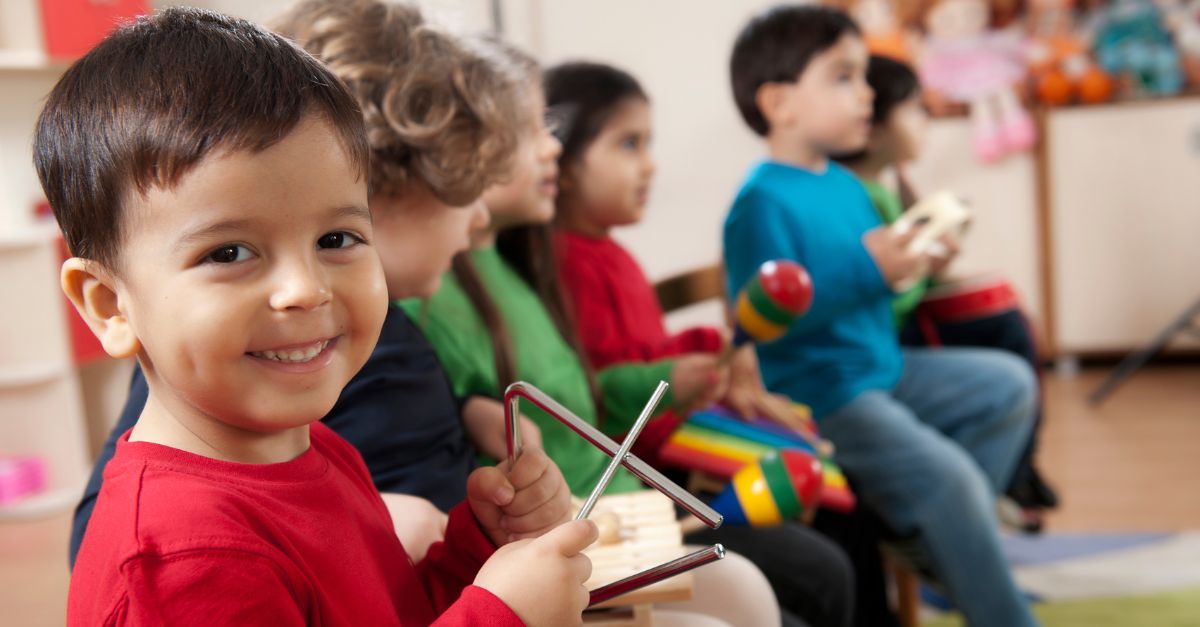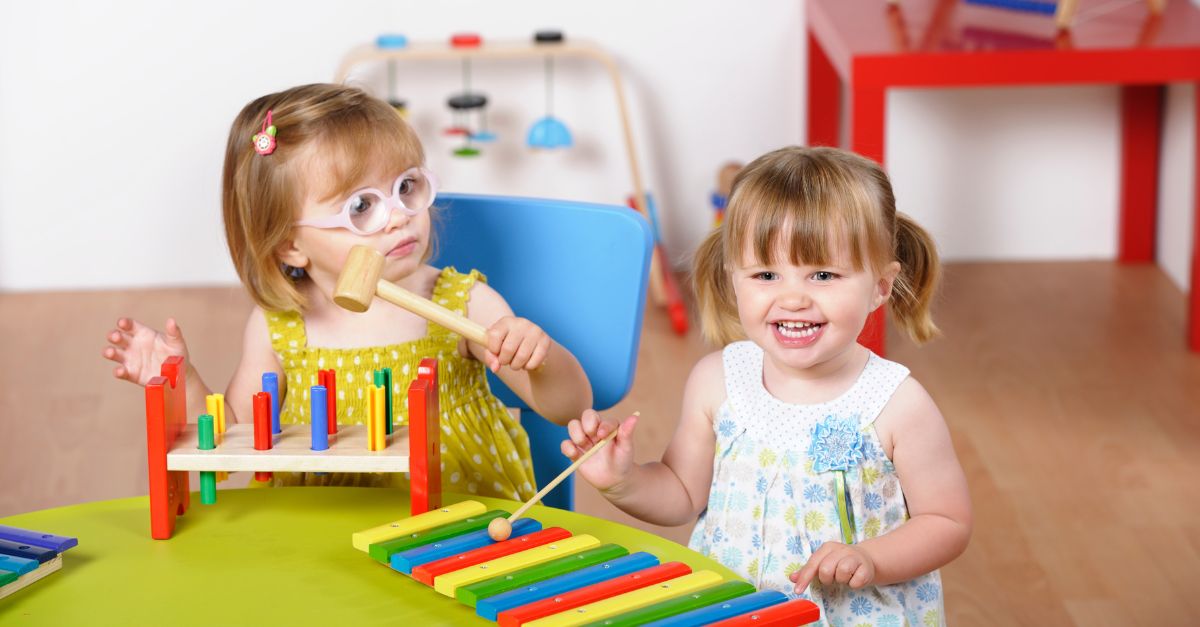Music is a powerful force in early childhood development, offering children opportunities to express themselves, connect with others, and build foundational skills that last a lifetime. From joyful singalongs to quiet listening moments, music taps into multiple areas of growth, including social, emotional, cognitive, and physical development. Music serves as a fundamental means of communication and self-expression for young children. Even before they begin to speak, children exhibit a profound responsiveness to the songs and melodies around them. Research indicates that music supports the development of critical skills such as self-regulation, cognitive, and intellectual development in early childhood.
At Lillio Learning, we've taken this understanding to heart by creating Spotify playlists for each theme in our Infant/Toddler and Preschool curricula. These curated playlists make it simple and enjoyable for parents, caregivers, and educators to integrate music into everyday learning experiences, encouraging children to explore, learn, and thrive.

Why Music Matters in Early Childhood
The impact of music on early childhood development cannot be overstated. Neuroscience research reveals that musical experiences engage multiple areas of the brain, particularly those related to language, memory, and motor skills. When young children sing, move, or play along to music, they're not just having fun—they're also:
- Enhancing cognitive skills: Music helps children recognize patterns, sequences, and structures, which are essential for problem-solving and logical thinking.
- Boosting emotional development: Songs with varied tempos and tones allow children to explore emotions in a safe and creative way, fostering deeper emotional understanding and self-awareness.
- Strengthening physical coordination: Dancing and playing instruments support the development of fine and gross motor skills, improving balance, agility, and precision.
- Building early literacy: Songs with repetitive lyrics, rhymes, and rhythms expose children to language patterns, phonics, and new vocabulary, laying the groundwork for reading and communication.
Music also brings children together. Group musical activities, like singing at circle time, dance parties or playing rhythm games, encourage cooperation, social interaction, listening skills, and turn-taking—essential social skills for children to develop as they grow.

How Lillio Learning Brings Music to Life
At Lillio Learning, we understand the integral role of music in early childhood education. That's why we've designed Spotify playlists that align with the themes in our Infant/Toddler and Preschool curricula. Each playlist includes carefully selected songs that:
- Reinforce theme concepts: Whether the theme is about animals or seasons, the playlists feature songs that complement and deepen understanding of the topic.
- Encourage movement and creativity: Fast-paced songs inspire energetic dancing, while slower tunes encourage mindfulness and relaxation. Movement activities tied to music build both confidence and physical skills.
- Support social-emotional growth: Songs from musical programs like Music Together and Kindermusik emphasize emotional expression and foster a sense of belonging as children embrace the music together.
- Promote literacy and language development: Children are naturally drawn to the rhythm and repetition of music, making it an effective way to introduce language concepts, phonetics, and storytelling.
Our playlists make music exploration easy and accessible for all—parents, caregivers, and educators alike. They can be used for structured activities, like circle time or guided movement sessions, or as calm background music for more open-ended play, allowing children to interpret and embrace the music in their own unique ways.

How to Access Lillio Learning's Playlists
Exploring our playlists is simple. Just search "Lillio Learning" on Spotify or use this link to find our profile. Each theme includes two playlists: one tailored for infants and toddlers and another for preschool-aged children. These playlists are designed to provide age-appropriate musical experiences that meet children where they are in their development.
If you're an educator or parent new to our playlists, start by choosing a theme your child is currently exploring. Use the music to introduce concepts, encourage creative movement, or simply as a joyful background to their day. The beauty of these playlists lies in their versatility—they can be adapted to any setting and used in ways that best fit your child's needs and interests.
We'd love to hear how you're using our playlists! Share your favorite moments and let us know which songs resonate most with your little learners.